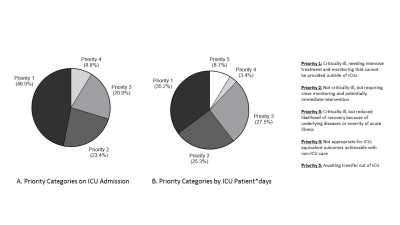27 Dec Expensive Intensive Care Units Often Overutilized
MedicalResearch.com Interview with:
Dr. Dong W. Chang, MD MS
Division of Respiratory and Critical Care Physiology and Medicine
Los Angeles Biomed Research Institute at Harbor-University of California
Los Angeles, Medical Center
Torrance California
MedicalResearch.com: What is the background for this study?
Response: The study was based on our overall impression that ICU care is often delivered to patients who are unlikely to derive long-term benefit (based on their co-morbidities/severity of illness, etc.). However, what surprised us was the magnitude of this problem. Our study found more than half the patients in ICU at a major metropolitan acute-care hospital could have been cared for in less expensive and invasive settings.
MedicalResearch.com: What are the main findings?
Response: Of the patients in the study, 23.4% were in need of close monitoring but not ICU-level care. Another 20.9% of the patients were critically ill but unlikely to recover because they had underlying illnesses or severity of acute illness. For another 8%, death was imminent or the same outcomes were expected in non-ICU care.
MedicalResearch.com: What should readers take away from your report?
Response: This research indicates that ICU care is inefficient because it is devoting substantial resources to patients who are less likely to benefit from this level of care. These findings are a concern for patients, providers and the health care system because ICU care is frequently invasive and comes at a substantial cost. Our data suggests that we should be examining ICU utilization in patients with such advanced medical illnesses in greater detail, as overuse of aggressive ICU care is likely to lead to invasive, potential harmful, treatments without significant clinical gain.
MedicalResearch.com: What recommendations do you have for future research as a result of this study?
Response: We plan to focus our efforts on improving ICU utilization among those patients with advanced medical conditions who are unlikely to benefit from ICU care. We are examining why patients with such advanced medical illnesses are receiving invasive treatments and identifying interventions to optimize this element of ICU care. As an example, we are exploring ways to improve communications between patients/surrogate decision-makers and care providers to make sure that the care we deliver aligns with patients’ preferences and to unify goals and expectations for ICU care.
MedicalResearch.com: Is there anything else you would like to add?
Response: While this is a study of just one hospital and results may differ at other medical centers, we suspect that these characteristics of ICU utilization are commonplace and prevalent in many institutions. Also in other hospitals, the ICU may be the most appropriate level of care because the hospitals don’t have appropriate levels of care for those patients outside the ICU. However, there is likely to be a subset of patients in which ICU care leads to unwanted, invasive care without significant clinical benefit. Refining our ability to identify these patients and developing approaches to improve ICU utilization for those patients are important steps to assure the best care for patients and the most efficient use of the healthcare system’s limited resources.
Dong W. Chang, MD, is a senior researcher at LA BioMed, one of the country’s leading nonprofit independent biomedical research institutes. For more information, please visit www.LABioMed.org
MedicalResearch.com: Thank you for your contribution to the MedicalResearch.com community.
Citation:
Chang DW, Dacosta D, Shapiro MF. Priority Levels in Medical Intensive Care at an Academic Public Hospital. JAMA Intern Med. Published online December 27, 2016. doi:10.1001/jamainternmed.2016.8060
Note: Content is Not intended as medical advice. Please consult your health care provider regarding your specific medical condition and questions.
More Medical Research Interviews on MedicalResearch.com
[wysija_form id=”5″]
Dr. Dong W. Chang (2016). Expensive Intensive Care Units Often Overutilized https://medicalresearch.com
Last Updated on December 27, 2016 by Marie Benz MD FAAD


